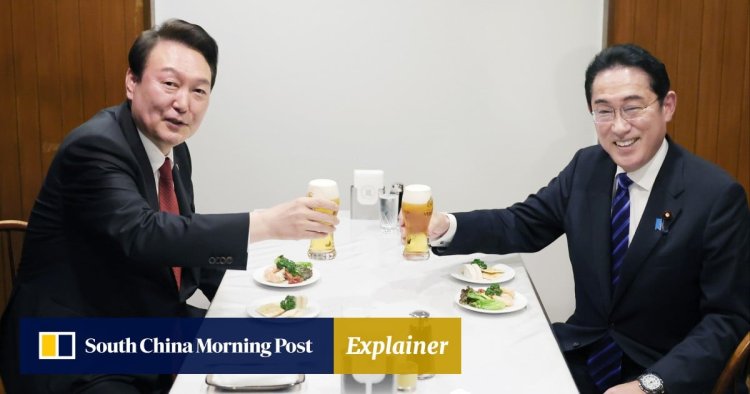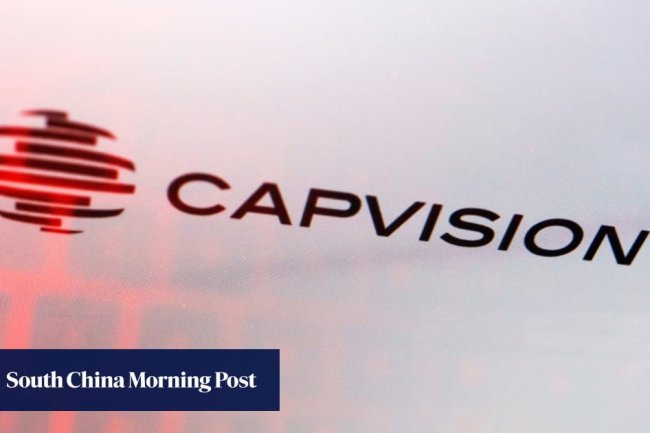‘A turning point’: what’s in store for South Korea-Japan ties as Yoon, Kishida meet in Seoul?
2023.05.06 11:30The relationship between South Korea and Japan looks set for a thaw as the leaders of both nations meet on Sunday to discuss a range of shared interests, including security and trade.South Korean Finance Minister Choo Kyung-ho earlier this week described the situation as a “turning point”, following years of acrimony over historical disagreements related to Japan’s treatment of its former colony.The past was dredged up after a 2018 South Korean court ruling rekindled ill feelings over Koreans used as forced labour during the Japanese occupation in WWII, sparking a diplomatic row over intelligence-sharing and tit-for-tat trade restrictions.A recent accord struck between Prime Minister Fumio Kishida and South Korean President Yoon Suk-yeol during the latter’s March visit to Tokyo – the first in 12 years – aimed at putting that issue in the past.This weekend’s summit in Seoul is the reciprocation of Yoon’s visit, when both sides pledged to restore regular “shuttle diplomac


The relationship between South Korea and Japan looks set for a thaw as the leaders of both nations meet on Sunday to discuss a range of shared interests, including security and trade.
South Korean Finance Minister Choo Kyung-ho earlier this week described the situation as a “turning point”, following years of acrimony over historical disagreements related to Japan’s treatment of its former colony.
The past was dredged up after a 2018 South Korean court ruling rekindled ill feelings over Koreans used as forced labour during the Japanese occupation in WWII, sparking a diplomatic row over intelligence-sharing and tit-for-tat trade restrictions.
A recent accord struck between Prime Minister Fumio Kishida and South Korean President Yoon Suk-yeol during the latter’s March visit to Tokyo – the first in 12 years – aimed at putting that issue in the past.
This weekend’s summit in Seoul is the reciprocation of Yoon’s visit, when both sides pledged to restore regular “shuttle diplomacy”.
Here’s what to know about the recent thaw in South Korea-Japan ties and this weekend’s summit.
The summit comes two weeks after Yoon visited Washington to meet US President Joe Biden, with both leaders emphasising “the importance of US-ROK-Japan trilateral cooperation [that is] committed to shared prosperity and security” in a joint statement.
It also comes in the face of North Korea’s frequent missile launches, with 26 in the first quarter of this year. Last month, Pyongyang said it tested a new solid-fuel intercontinental ballistic missile – the first time it has done so – which flew over Japan towards the Pacific Ocean.
Solid-fuel rockets have shorter burn times than liquid propellants, meaning the North can strike the US with far less warning.
In the light of Pyongyang’s provocations, Seoul and Tokyo in March normalised an intelligence-sharing pact, the General Security of Military Information Agreement.
Japan and South Korea are cosying up because ‘it makes perfect sense’
Choi Eun-mi, a research fellow at Asan Institute for Policy Studies in Seoul, said that while the current state of South Korea-Japan ties might not lead to a military alliance, building closer security ties to deter North Korea’s missile threats was likely to be the focus of Kishida’s visit.
“There will be a discussion on how to respond to North Korean nuclear threats … In terms of information exchange, there can be discussions on increasing the quality of the information they share,” Choi said. “It would be more important to discuss how to cooperate between South Korea, the United States and Japan.”
Defence officials from the three countries last month agreed to step up efforts to realise real-time information-sharing about North Korean missiles to “enhance trilateral security cooperation”. Japan has said it will also invite South Korea to the G7 summit in Hiroshima later this month.
Among the key results of Yoon’s US visit was the “Washington Declaration”, which reaffirmed the “regular visibility” of US strategic assets – including nuclear-armed ballistic missile submarines – to the Korean peninsula.
The two countries will also set up a nuclear consultative group (NCG) to “strengthen extended deterrence, discuss nuclear and strategic planning, and manage the threat to the non-proliferation regime posed by [North Korea]”.
The main point of friction between Seoul and Tokyo, however, is the forced-labour compensation issue.
In 2018, 15 Koreans won lawsuits against two Japanese companies – Mitsubishi Heavy Industries Ltd and Nippon Steel Corp – accused of forced labour during Japan’s colonial rule. Tokyo insisted the compensation issue had been resolved in a bilateral treaty in 1965 and imposed retaliatory economic sanctions on South Korea in 2019.
Following years of stalemate, South Korea in March revealed a new compensation plan under which victims would receive reparations from a Seoul-backed fund instead of from the Japanese companies linked to forced labour.
South Korea faces backlash for ‘humiliating’ deal over Japan forced labour row
South Korea’s opposition condemned the plan as “humiliating” as it lacked an official apology from the Japanese government in Tokyo.
A recent Gallup Korea poll showed Yoon’s public approval rating after his Tokyo visit dropped by 1 percentage point to 33 per cent, with “forced-labour compensation plan” and “diplomacy” among key reasons for the negative appraisal.
South Koreans expecting Kishida to offer a direct apology for Japan’s colonial rule during his trip may also be disappointed. Japanese right-wing nationalists – including the ruling Liberal Democratic Party – have claimed that no further apologies to the Korean victims are needed.
“It’s difficult to anticipate more than what Kishida said at the last summit, but it would be necessary for him to give consolation and sympathy to the victims even if he does not mention any words like ‘apology’ or ‘regret’,” Choi said.
Kishida’s visit could also signal increased bilateral trade ties, which had already received a boost following Yoon’s trip in March.
Japan has taken steps to ease trade restrictions on its neighbour, such as lifting the export ban on key semiconductor materials, and commencing procedures to return Seoul to “white list” trade status after the latter was downgraded in 2019 over the forced-labour compensation dispute.
Improved bilateral ties may also prove crucial amid Washington’s drive to limit China’s role in the global semiconductor supply chain. The US’ “Chip 4” alliance aims to push for closer economic cooperation between South Korea – the largest supplier of memory chips – and Japan, a key exporter of semiconductor materials and equipment, in the global production and trade in semiconductors.
Warmer ties between South Korea and Japan could lead to a closer military alliance with the US, which may utilise the NCG and North Korea threat to push for a bigger presence in the region to thwart China’s ambitions in the Taiwan Strait.
Seoul’s recent security and foreign-policy moves have predictably prompted strong reactions from Beijing.
China and South Korea summoned each other’s diplomatic envoys last month following a sharp exchange of words by both sides over comments by Yoon in a Reuters interview where he said “any unilateral attempts to change the status quo in the Indo-Pacific” was unacceptable.
The joint statement by Biden and Yoon following the latter’s White House visit also reaffirmed “the importance of preserving peace and stability in the Taiwan Strait” and the South China Sea.
Washington Declaration not meant to ‘isolate’ any country, South Korea tells China
The Chinese foreign ministry hit back, saying “the Taiwan question is purely an internal affair at the core of China’s interests”.
Choi said if South Korea’s ties with the US and Japan became more stable, Beijing was likely to express discontent towards Washington and its allies, escalating tensions in the Asia-Pacific region.
“While China welcomes the improvement in South Korea-Japan relations, it would try to block the creation of a camp or bigger voice resisting against a certain country,” Choi said.
“I think Beijing would urge South Korea not to fall into a partisanship logic from a particular country, in this case the US.”
What's Your Reaction?













